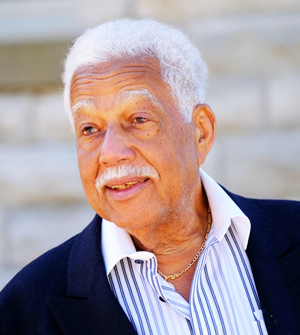
By Paul Hubbard
Guest Column
Charles Ogletree, Harvard Law professor, renowned activist and mentor to both Barack and Michelle Obama, just died of Alzheimer’s disease. He was 70 years old. When I was a student at Harvard Kennedy School of Government, I saw Charles Ogletree and Cornell West in campus debate events with their White colleagues on racial issues.
According to a report on race and ethnicity by the centers for Disease Control and the Alzheimer’s Association says that 50 percent of Black Americans report discrimination in health care which impacts our community. Alzheimer’s and dementia higher rates in our community is a result of this.
Alzheimer’s and dementia are the loss of cognitive functioning, thinking, remembering and reasoning to the extent that it interferes with a person’s ability to function in daily life. Over time people may have more behavioral changes, become angry and aggressive, and may see things that are not there.
Among Black Americans aged 70 and older 21.3 percent are living with Alzheimer’s. While older Black Americans are twice as likely as older Whites to have Alzheimer’s or dementia, research hasn’t yet identified the cause. Higher rate of cardiovascular (heart and blood vessels) disease may play role.
Some studies indicate that after correcting for overall health and socioeconomic status these differences disappear, according to the Boule Journal. Only 20 percent of Black Americans say that they have no barriers to excellent health care and support for Alzheimer’s or other dementias.
The Sigma Pi Phi Boule Journal says only 48 percent of Blacks report being confident they can access culturally competent care. Only 53 percent of Blacks believe that a cure for Alzheimer’s will be distributed fairly without regard to race, color, or ethnicity and 55 percent of Blacks think that significant loss of cognitive abilities or memory is a natural part of aging rather than a disease.
Normal aging may include age-related memory loss, such as not remembering names, misplacing keys or struggling to find a word, but knowledge and experience built over time, old memories and language stay intact.
Alzheimer’s Association’s warning signs are memory loss that disrupts daily life, challenges in planning and problem solving, difficulty in completing familiar tasks, confusion with time or place, trouble understanding visual images and spatial relationships, new problems with words in speaking and writing, misplacing things and losing the ability to retrace steps, decreased or poor judgment, withdrawal from work or social activities and changes in mood and personality.
Let’s protect our mental health by being active, managing blood sugar, reading, keeping healthy weight, watching blood pressure, getting enough sleep, no smoking, manage=ing depression, and staying engaged socially.
Paul L. Hubbard, MSW “Senior Moment,” President, Comfort Adult Day Care Services.
